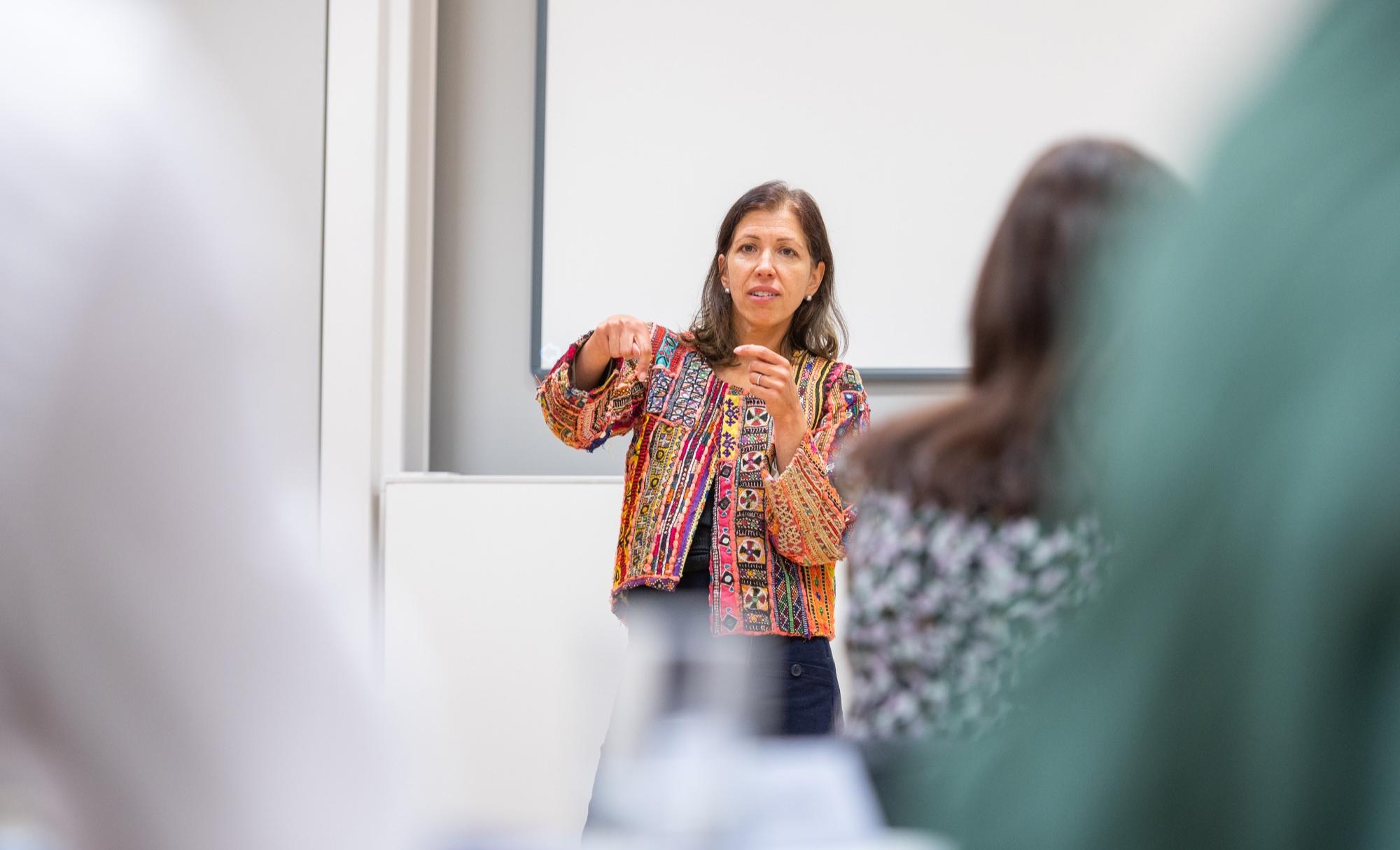
Different varieties of nationalism can lead to violence and discrimination, to civil rights and freedoms, and to a whole range of outcomes in between. In a new book called Varieties of Nationalism: Communities, Narratives, Identities (Cambridge University Press), faculty member Maya Tudor and co-author Harris Mylonas (Elliott School of International Affairs, George Washington University) offer a framework for considering variations in nationalism and how they affect outcomes. We ask her about it.
What is nationalism?
That is centrally what this book tries to define. Nationalism is the most powerful political ideology of the modern age: few political creeds are as widely accepted as that of national self-determination. That’s so central to our world that we forget it is a recent chapter in human history. A century ago, the world was a motley assortment of kingdoms, city-states, empires, colonies and fewer than 60 countries. Now, nearly 200 nations have almost entirely replaced these older units, forming the international system of nation states.
Even with globalisation and digital connectivity, the nation state remains our most consequential unit for addressing the big challenges, from poverty to climate change. We saw this in the COVID-19 pandemic: in a global crisis, the nation was the fundamental unit of response, even in the supranational European Union. The nation-state, with its array of economic, financial, welfare and organisational powers, was the pandemic’s most consequential actor.
While no-one can dispute that nationalism is an important area of study within political science, scholars of nationalism are surprisingly inconsistent in their definitional approaches. This stands in contrast to democracy, where scholars are aware of this problem and routinely set out their definition before discussing their central questions.
We argue in the book that nationalism has three core attributes.
First, nationalism is the recognition and celebration of an imagined community (that is, a community beyond people you physically encounter) as a locus of loyalty and solidarity. This recognition must be ‘inter-subjective’, in other words shared by multiple minds. Sometimes nations absorb religious or ethnic identities. But sometimes they do not – Estonia is an example of a nation that was newly awakened in the latter half of the nineteenth century.
Second, nationalism must involve a drive for fully sovereign self-rule over a distinct territory, pursued by a significant segment of a group’s elite. If it doesn’t include an aspiration for sovereignty over a particular territory, it’s not nationalism. So though we can speak of a Bavarian regional identity in Germany or a Keralan regional identity in India, these are not national identities because no serious political movement desires full political self-rule over a distinct territory in these regions. By contrast, we can speak of Scottish nationalism in the United Kingdom or Kashmiri nationalism in India because there are serious political movements advocating full political self-rule over a distinct territory.
Third, there is an increasing recognition that nationalism exists in quiet everyday markers that subtly raise awareness of the nation. These include flags, currencies, national songs, literary giants, celebrated monuments, and support for national sport teams.How is nationalism shaping the world today?
As well as organising our global system of nation states over the last 100 years, nationalism has recently resurfaced in domestic politics across every corner of the globe. A few prominent examples: India’s Narendra Modi swept to power in 2014 and 2019 through election campaigns explicitly touting Hindu nationalism. China’s Xi Jinping has pushed for a Han-centric understanding of Chinese nationalism to consolidate his power to such a degree that he is widely considered the most powerful leader of the People’s Republic of China since Mao Zedong. Donald Trump was elected President of the United States in 2016 after promising in his campaign to ‘Make America Great Again’ and put ‘America First’, and to defeat Trump, President Biden’s efforts centred around reclaiming patriotism, referring to the ‘Battle for the Soul of the Nation’. Putin’s articulated reason for invading Ukraine was a particular understanding of Russian national identity. (Conversely, Ukrainian nationalism has united its people in defence of its newfound democracy.) Nationalist sentiment is driving limits to trade flows, the championing of national industries and reduced economic cooperation between countries.
What does the book aim to do?
This is a book aimed at those studying and teaching nationalism, whether within political science or other disciplines. We aim to convince scholars of nationalism to try and speak to each other by using common definitions and relating their research questions to each other.
We also try to address a number of problems in nationalism scholarship. One problem is a Eurocentric/Western bias in so much scholarship. While nationalism first arose in Europe, and the idea that government should rule in the name (and interests) of a people came to global prominence in the American and French revolutions, these early nationalisms aren’t representative of most nation-states today. Two-thirds of the world’s population lives in nations which emerged through a distinctly 20th-century process of decolonisation and the assertion of control by indigenous peoples across Asia and Africa.
Another problem we’re trying to address is a normative bias in both academia and popular media that believes nationalism per se is undesirable. For obvious historical reasons, thinkers from continental Europe, especially Germany, see nationalism as a negative force. But while Hitler was a nationalist, so was Gandhi. In fact, Gandhi said one had to be a nationalist first before one could be an effective participant in international communities. While nationalism can certainly go horribly wrong, it has also been responsible for some of the greatest advances in human freedom the world has seen. That these two facts are simultaneously true suggests we need to know a lot more about the circumstances under which nationalism leads to war or emancipation.
Do such questions in academia matter in the real world?
Absolutely. Real-world policies turn on these questions. A few years ago, French President Emmanuel Macron called on world leaders to reject nationalism, calling nationalism a ‘betrayal of patriotism.’ Yet good research shows that these concepts are actually difficult to disentangle because nationalism and patriotism are very similar to each other. It turns out that a patriot, often is taken to mean someone who only loves their own country, can very quickly become a nationalist, often taken to mean someone who loves their own country and believes other countries are inferior, when threatened. So drawing distinctions between patriotism and nationalism is splitting hairs and ridding the world of nationalism is a fool’s errand. It might be a good soundbite, but it does not make any real sense. Since we live in a world of nation-states, nationalism is here to stay.
When I poll my students on what political identities matter most to them, about half choose their nation as an important identity. The best policymakers can do in a world where nations are important identities is to research the circumstances under which nationalism can lead to pro-social outcomes. And to do such research, academics first need to have a shared understanding of what nationalism is and the dimensions along which it varies. Only then can scholars try to ask, for example, when and how nationalism produces xenophobia, war and even genocide in some cases and democratisation or the provision of public goods, from the rule of law to drinking water, in other cases. A better understanding of these issues – starting perhaps in academia but eventually informing decision-makers, governments and citizens – can mean better decisions in the real world, with direct consequences for people’s lives.
Varieties of Nationalism: Communities, Narratives, Identities by Maya Tudor and Harris Mylonas is published by Cambridge University Press.



